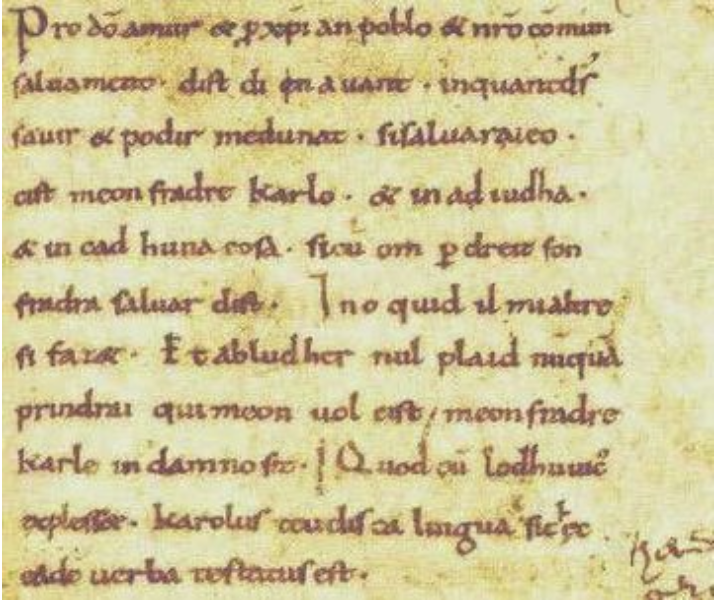So you’ve been invited to a Eurovision watch party, or maybe you’ve decided to give it a try but aren’t sure what the fuss is all about. No worries, we’ve got you covered! After reading this crash course, you’ll know everything you need to about this contest pitting countries against one another through song and dance, and you’ll be ready to impress your fellow watchers, who will undoubtedly award you their douze points for your expertise!
If you’re in NYC, join us at Coucou for our Grand Final Watch Party on May 11th! Grab your friends, don your most fabulous outfit, and get ready to cheer for your favorite acts as we experience the magic of Eurovision together!
By Pierre Beaudet
A major world event
In essence, Eurovision is an annual song competition where European countries (alongside a few non-European nations like Israel and Australia) compete with elaborate, flamboyant and often surprising performances. The contest consists of three live shows—two semi-finals and one grand finale.
The first Eurovision song contest was broadcast in 1956, drawing inspiration from the Sanremo Music Festival in Italy. It has since aired every year (with the exception of 2020 due to Covid), making it one of the longest-running TV programs in the world, and the longest-running music competition on TV.
Despite its image as a kitsch show adorned with glitter, feathers, and wacky performances, Eurovision consistently ranks among the most watched programs globally, often claiming the top spot outside of sports competitions.
Who can participate, and why is Australia part of Eurovision?
The Eurovision Song Contest is organized by the European Broadcasting Union (EBU), an alliance of public TV broadcasting companies, such as the BBC for the UK or France Télévisions for France. Each national broadcaster selects the artist to represent them using their own process.
Despite its name, the eligibility of countries is not based on their geographical location but on whether they are a member of the EBU, which explains why countries like Morocco, Israel, and Australia have been able to enter the contest despite not being located on the European continent.
France, Germany, Italy, Spain, and the UK, also known as the Big 5, represent a significant part of the funding of the EBU. The Big 5, as well as the hosting country, are systematically qualified for the finals, sparing them from having to compete in the semi-finals the days before the big show.
How is the winner selected?
The voting system has changed significantly over the history of the contest. It was often criticized for being long and complicated but was reformed in recent years to be more inclusive and to simplify the process. Here’s a breakdown of the current system:
- Audience Votes (50%): Viewers in participating countries can cast their votes online for their favorite performances, excluding their own country. In non-participating countries, such as the United States, audience votes are combined into a “rest of the world” category, which is treated as equivalent to a single participating country’s vote.
- National Juries (50%): Made up of music industry professionals, they rank their ten favorite performances.
Both the audience and the jury award points based on their rankings, with the top-ranked performance receiving 12 points, the second-ranked receiving 10 points, and then 8 to 1 points for the third to tenth places, respectively.
Participating countries mostly fear ending up with the dreaded “nil points” or no vote. While it has become excessively difficult to achieve since the introduction of audience voting in 2016, the UK nonetheless achieved that feat in 2021.
How is France doing?
If you look at the stats since the beginning of the contest, France is doing pretty well! It’s in second place, tied with other countries who have each won five times (Luxembourg, the Netherlands and the UK), while the top spot is shared by Ireland and Sweden, who have each won seven times.
But, if you look a bit closer, France had been faring really well in the early years, but hasn’t won since…1977! A popular joke in France suggests that the government deliberately sends less competitive artists to avoid the expense of hosting the event the following year.
That would be forgetting that France has often come close to winning, like in 2021, when Barbara Pravi’s “Voilà” (watch below!) finished second, and that it’s come in third and fourth place more times than any other country.
France consoles itself by being the only one of the Big Five to have never scored 0 points, and with the fact that on this day, all of Europe speaks French, hoping to get other countries’ coveted douze points (“twelve points”), the highest score that can be attributed.
A springboard for artists
Eurovision has been a launchpad for many artists, propelling their careers onto the national and international stages. While participants must be selected by each country’s national broadcaster, they don’t need to be a citizen of a given country in order to represent it. This rule has allowed numerous American artists to enter the competition, like Katrina Leskanich of Katrina and the Waves winning for the United Kingdom in 1997 with “Love Shine a Light.”
Among notable winners, Céline Dion’s victory for Switzerland in 1988 with “Ne Partez Pas Sans Moi” (see above) marked the start of her international fame, following one of the most suspenseful vote counts in Eurovision history. Similarly, ABBA’s win in 1974 with “Waterloo” catapulted them to global stardom, cementing the song as one of their greatest hits.
United in Controversy
Although the Eurovision sees itself as a positive event that brings the continent together (its motto is “United by Music”, echoing the EU’s motto “United in Diversity”), it has been at the center of many controversies:
- Despite the EBU’s best efforts to keep politics out of the contest, and the ban on political performances, geopolitics has invited itself repeatedly as a surprise participant. Two recent examples are the war in Ukraine leading to both the exclusion of Russia and the victory of Ukraine in 2022, as well as the UK scoring zero points the year after Brexit.
- The introduction of televoting in the early 2000s brought criticism for regional voting patterns, where voters tend to favor countries with which they share cultural or geographical ties. The impact of these voting patterns is one of the great debates of the contest.
- Critics argue that Eurovision favors certain types of music, particularly power ballads, and English-language songs, leading to a lack of diversity in entries, and underrepresentation of national languages. A recent counterexample to both criticisms was the unexpected victory of Italian rock band Måneskin with “Zitti e Buoni” in 2021.
- Finally, the voting system, though it has changed many times, faces recurring criticisms. The 2023 edition was no exception with outrage following the victory of Sweden over Finland’s “Cha Cha Cha” by Käärijä, despite receiving the second highest number of points ever from the public. The ABBA conspiracy theory (yes, it’s a real thing) sees in this result the proof that the contest was rigged in order to ensure that the 2024 Eurovision song contest would be hosted in Sweden, just in time to celebrate the fiftieth anniversary of ABBA’s victory.
What to expect in the 2024 edition
As I mentioned in the previous paragraph, because Sweden won last year (with Loreen’s “Tattoo”), they will be this year’s hosting country, exactly fifty years after ABBA’s iconic victory, so you can expect some type of special celebration. Per Blankens, this year’s showrunner, confirmed an ABBA “component”, but we don’t have a clue about whether it means a video montage of their career history or a live performance from the band.
As we write these lines, Nemo (for Switzerland) is currently leading as the favorite with their song “The Code,” which explores themes of coming to terms with non-binary identity. Following closely behind is Croatia, represented by Baby Lasagna’s “Rim Tim Tagi Dim,” a humorous entry touching on the economic exodus of young Croatian generations. The Netherlands is in third place with “Europapa” by Joost Klein, a joyous track narrating the journey of an orphan across Europe.
What’s for sure is that, just like every other year, you can expect incredible outfits—from sparkling dresses to ensembles that are, well, unusual—as well as plenty of power ballads, dance numbers, pyrotechnics, fake rain, and heart hands.
Some other memorable performances
If you’d like to dive deeper into moments that made Eurovision history, here are some winners worth knowing:
- Technically not a winner, as he came 3rd, Domenico Modugno remains as an important participant when he represented Italy in 1958 with “Nel blu, dipinto di blu”, which you may know as “Volare”. The song went on to become some kind of anthem in Italy, in the Italian diaspora (the lyrics of that song are hanging above the streets of Little Italy, in NYC) and beyond.
- “Poupée de Cire, Poupée de Son”, the winning ticket for Luxembourg in 1965. The song was composed by Serge Gainsbourg and interpreted by then-seventeen-year-old France Gall, and became a hit of the yé-yé movement.
- “My Number One” by Helena Paparizou, winning for Greece in 2005, makes us want to dance like it’s the 2000s again.
- “Fairytale” by Alexander Rybak for Norway in 2009 established a new record for the highest number of points won.
- “Rise like a Phoenix”, the Austrian entry of 2014, by drag performer Conchita Wurst, with a song straight out of a Bond movie.
- “Arcade” by Duncan Laurence, broke the forty-three-year streak of bad luck for the Netherlands in 2019, and went one to become the most streamed Eurovision song ever.
- If you have used social media in recent years, chances are that you know the saxophone solo from “Run Away”, by Sunstroke Project and Olia Tira, “Snap” by Rosa Linn, or “Shum” by GO_A.





